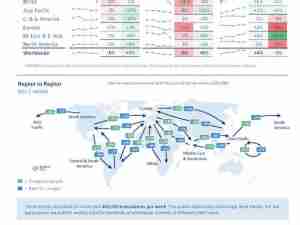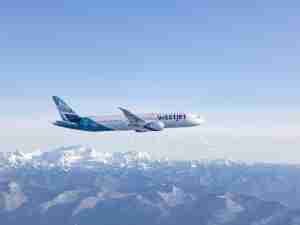International freight traffic rose 4.9%, up from 4.7% in August but below the historic long-term average growth of 6.0%. For the year to date, freight demand has grown 5.2% over the same period in 2005.
'Slowing traffic growth is starting to weaken the strong revenue environment, but efficiency gains and careful capacity management continue. The recent fall in spot prices for oil has provided a boost, though prices for forward purchase remain close to US$70 per barrel. The net result for the industry is more profitable growth and we are confident that the industry will improve the bottom line to a loss of US$1.7 billion for this year,' said IATA Director General and CEO, Giovanni Bisignani.
Middle East carriers showed the strongest growth with September passenger demand increasing by 13.1% and cargo demand by 13.9% over the same month in 2005. Both are below the year-to-date growth figures for the region's carriers: 15.4% for passenger and 16.8% for cargo. Continuing restructuring in Latin America resulted in an 8.6% contraction in September passenger traffic for the region's carriers compared to 2005.
September load factors remained strong reflecting a 4.4% increase in capacity compared to a 4.7% increase in demand. European carriers recorded a passenger load factor of 80.0% in September, the highest of all regions. Year-to-date, North American carriers show the strongest load factor at 80.9%.
'High load factors are among the most blatant examples of airline efficiency that is driving the industry towards a US$1.9 billion profit in 2007'the first since 2000. But the entire value chain must be on board. Unfortunately, too often governments are not keeping pace at the expense of the air transport industry and the environment. While airlines are doing everything possible to reduce their 2% share of greenhouse gasses globally, governments are perpetuating the 12% inefficiency in air traffic management by failing to take leadership in implementing a Single European Sky or simply straightening out air routes. This must change,' said Bisignani.






